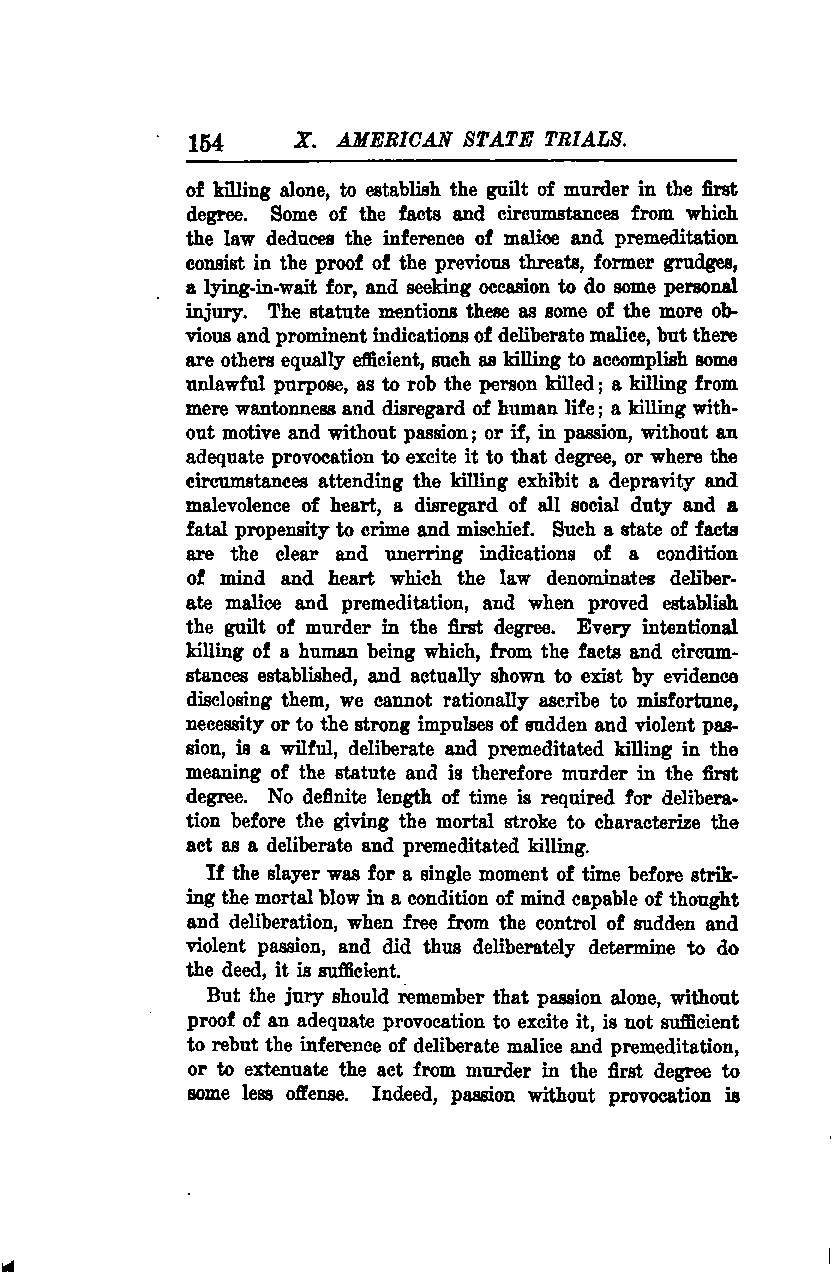
Here is the translated text as follows:
154 X. AMERICAN STATE TRIALS.
The proof of killing alone is not sufficient to establish the guilt of murder in the first degree. Some of the facts and circumstances from which the law deduces the inference of malice and premeditation include proof of previous threats, former grudges, lying in wait, and seeking an occasion to inflict personal injury. The statute mentions these as some of the more obvious and prominent indications of deliberate malice, but there are others equally effective, such as killing to accomplish some unlawful purpose, such as robbing the person killed; a killing from mere wantonness and disregard of human life; a killing without motive and without passion; or, if in passion, without adequate provocation to excite it to that degree, or where the circumstances attending the killing exhibit a depravity and malevolence of heart, a disregard of all social duty, and a fatal propensity to crime and mischief. Such a state of facts are the clear and unerring indications of a condition of mind and heart which the law denominates deliberate malice and premeditation, and when proved, establish the guilt of murder in the first degree. Every intentional killing of a human being, which, from the facts and circumstances established and actually shown to exist by evidence disclosing them, we cannot rationally ascribe to misfortune, necessity, or to the strong impulses of sudden and violent passion, is a willful, deliberate, and premeditated killing in the meaning of the statute and is therefore murder in the first degree. No definite length of time is required for deliberation before giving the mortal stroke to characterize the act as a deliberate and premeditated killing.
If the slayer was for a single moment of time before striking the mortal blow in a condition of mind capable of thought and deliberation, when free from the control of sudden and violent passion, and did thus deliberately determine to do the deed, it is sufficient.
However, the jury should remember that passion alone, without proof of an adequate provocation to excite it, is not sufficient to rebut the inference of deliberate malice and premeditation, or to extenuate the act from murder in the first degree to some lesser offense. Indeed, passion without provocation is not enough.